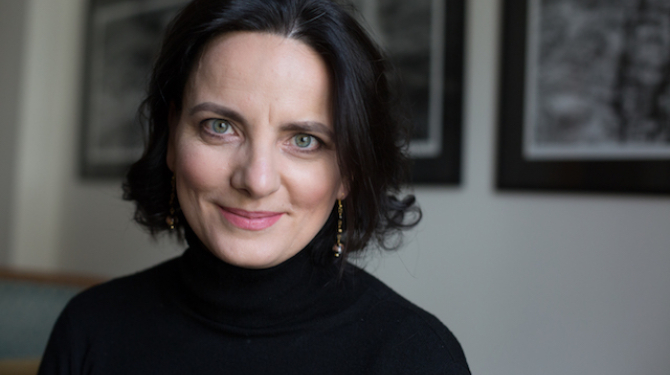Sign up for our free daily newsletter
YOUR PRIVACY - PLEASE READ CAREFULLY DATA PROTECTION STATEMENT
Below we explain how we will communicate with you. We set out how we use your data in our Privacy Policy.
Global City Media, and its associated brands will use the lawful basis of legitimate interests to use
the
contact details you have supplied to contact you regarding our publications, events, training,
reader
research, and other relevant information. We will always give you the option to opt out of our
marketing.
By clicking submit, you confirm that you understand and accept the Terms & Conditions and Privacy Policy
Dana Denis-Smith, CEO of Obelisk Support and founder of the First 100 Years campaign, talks about what law firms can do to boost diversity in leadership roles, in the latest in a series of interviews with the judges of Global Legal Post's inaugural Women and Diversity in Law Awards
I was born in Transylvania, Romania, so obviously English wasn’t my first language. I learned English when I was 16 and became an English language journalist after high school. I started a little bit later with my university education. I was a mature student at the London School of Economics and came to the legal profession later than a lot of my peers. I started my training when I was 30 and already married.
That was my first challenge. We had to go abroad to do an international seat and I chose Amsterdam, but the arrangement was that all the trainees had to share one flat. I explained that for me, that was not quite right for a married person, but they couldn’t see my point of view. I was quite struck by why I even had to explain and thought once I had, they would make the necessary arrangements.
Instead, I had to go into a long conversation around my family background and my cultural beliefs to explain that, for me, it was not an acceptable setup for a married woman to share with a random collection of men, because, as was typical at that time, all the trainees were men. They eventually made the changes, but it was quite a disheartening experience.
It only takes five minutes to nominate yourself, your team or colleagues you admire for the Women and Diversity in Law Awards. The deadline is Friday 30 September. Click here to submit a nomination
In the end, these experiences, along with the relentless, always on call culture, meant I decided I didn’t want to practise and I left the legal profession to become an entrepreneur. I started Obelisk Support because I heard that firms and corporate legal departments were outsourcing work to cheaper destinations in the world. I thought, why don’t you send the work to people that want to work more flexibly instead? My idea was to create an outsourcing model based on flexible workers working hours that suit them. Initially this was primarily mothers working remotely, who wanted to continue to practice but without having to do their own business development or have their own infrastructure setup.
At the same time as my business was taking off, I launched the First 100 Years campaign to mark 100 years since women were allowed to be lawyers. This was about celebrating the achievements of women that nobody had heard of, looking at the 100 years, from 1919 to 2019 and telling the untold stories of those early pioneers. It took a long time for women to gain a foothold in the profession. It’s all very recent and progress still needs to be made towards true equality.
The demographics have changed significantly since I started out. It’s positive that we now have majority female entrance and far more diversity in terms of ethnicity and socioeconomic background. There’s been a lot of effort put into attracting a wider spectrum of people. What we now need to see is that translating into more diverse people in leadership positions.
Structurally the profession needs a reset if it is really going to welcome people from very different backgrounds. The partnership route, for example, requires the rainmaking ability that comes with having a network. If you don’t have that, it can be a struggle to get to the top. So there still needs to be more done to help people progress, irrespective of background. It’s not working right now, but it isn’t impossible to look at the way you run a law firm to make it more inclusive, whether that’s by introducing more flexible working, focusing on monitoring outputs rather than inputs or rethinking billable hours targets.
In the run up to the nominations deadline for the Women and Diversity in Law Awards, The Global Legal Post has been publishing judges' reflections on their careers and how best to promote DE&I in the legal profession:
'I was trying to over-compensate for being different': Baker McKenzie's global marketing director on the importance of inclusion
‘Tiny changes can have a massive butterfly effect’: Clifford Chance's UK inclusion head on her D&I story
‘Everyone’s been excluded': Accenture Legal's global diversity head on the power of empathy
Email your news and story ideas to: [email protected]






